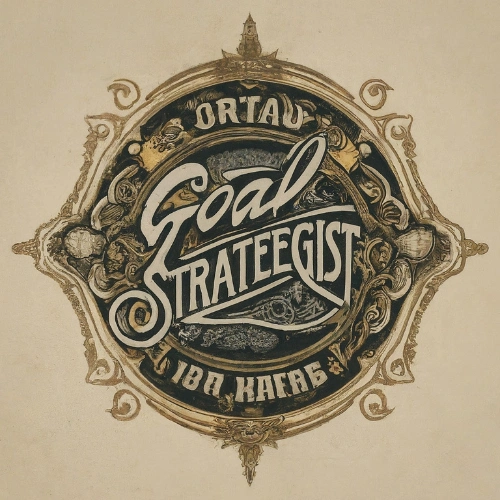Ever wondered what sets successful people apart? It’s often their intrapersonal goals—the ones they set for themselves, by themselves. These personal objectives are the silent drivers behind professional triumphs and personal satisfaction. Whether you’re aiming to boost your self-esteem or master a new skill, understanding and setting intrapersonal goals can be a game-changer in your life’s narrative.
But what exactly falls under the umbrella of intrapersonal goals? You might be thinking about self-improvement or self-awareness, and you’re on the right track. From enhancing emotional intelligence to cultivating resilience, intrapersonal goals come in many shapes and sizes, each tailored to your personal journey. Let’s dive into some classic examples that can help you check off the boxes on your path to personal growth.
Self-Improvement Goals
When setting intrapersonal goals, self-improvement is often at the forefront. You’re not just aiming for external successes; you’re seeking to grow and evolve from within. Here are some examples of self-improvement goals that you might consider adopting:
- Enhancing Time Management: By mastering your schedule, you become more efficient and effective in both your personal and professional life.
- Building Confidence: Taking steps to believe in your capabilities can open doors to opportunities and improve your social interactions.
- Learning a New Skill: Whether it’s a language, a musical instrument, or a technical skill, learning something new keeps your brain active and your motivation high.
Embracing self-improvement intrapersonal goals involves a commitment to self-reflection and an openness to change. It’s about seeking progress in areas where you feel you could be better. For instance, if you’re looking to enhance emotional intelligence, you might set goals like:
- Becoming more empathetic by actively listening to others.
- Better regulating your emotions in stressful situations.
Each self-improvement goal is a step towards becoming a more well-rounded individual. To start on this journey, you might:
- Identify areas in your life that need enhancement.
- Set specific, measurable, achievable, relevant, and time-bound (SMART) goals.
- Create a structured plan to track your progress and adapt as necessary.
It’s essential to recognize that achieving self-improvement goals is often an iterative process. You might find yourself revisiting and refining your objectives as you grow. Remember to celebrate the small victories along the way; they’re indicators of your commitment to ongoing self-improvement.
Self-Awareness Goals
Recognizing your inner dialogue can be transformative for your personal growth. Self-Awareness Goals aim to help you develop a deeper understanding of your thoughts, feelings, and behaviors. This self-knowledge paves the way for other intrapersonal developments.
Gain Insight Into Your Emotions
You might find it challenging to pinpoint exactly how you feel in different situations. Setting a goal to recognize and name your emotions guides you toward heightened emotional intelligence. You’ll be able to:
- Track your mood daily
- Keep a journal to reflect on emotional responses
- Practice mindfulness to stay connected with your feelings
Understanding your emotional triggers allows for better self-control and stress management.
Introspect on Personal Values and Beliefs
Your values and beliefs shape every decision you make. You should periodically evaluate these to ensure they align with your current life. Ask yourself:
- What principles are most important to me?
- How do my beliefs influence my actions?
- Do my current priorities reflect my true values?
Enhance Your Strengths and Recognize Weaknesses
Being aware of what you’re good at and where you could improve is fundamental. Identify your strengths and weaknesses through:
- Seeking feedback from friends, family or colleagues
- Reflecting on past successes and failures
- Taking personality tests or professional assessments
Setting realistic goals around your findings propels personal development.
Foster Improved Self-Acceptance
It’s vital to accept yourself as you are, while acknowledging areas for growth. Practices to encourage self-acceptance include:
- Celebrating your unique qualities
- Being kind to yourself during setbacks
- Challenging negative self-talk with positive affirmations
As you become more accepting of yourself, your confidence and well-being flourish.
Each of these Self-Awareness Goals contributes to a better understanding of who you are and who you want to become. Remember to approach this journey with patience and curiosity, allowing personal insights to unfold naturally. Constant reflection and adaptation will lead to meaningful changes in how you relate to yourself and navigate the world around you.
Emotional Intelligence Goals
Leveraging your understanding of intrapersonal goals, it’s essential to recognize the role of emotional intelligence (EI) in personal development. Emotional intelligence is the capacity to identify and manage your own emotions, as well as the emotions of others. By setting EI goals, you’ll be on your way to enhancing relationships and boosting your professional performance.
Here are some examples of emotional intelligence goals that you might consider integrating into your personal growth strategy:
- Recognize and Label Your Emotions: Aim to understand your feelings at any given moment. Labeling emotions accurately helps in managing them effectively.
- Respond, Don’t React: Work on responding thoughtfully to situations rather than reacting impulsively. This shift is pivotal in maintaining control under pressure.
- Empathy Development: Enhance your ability to understand others’ emotions and perspectives. Empathy strengthens connections and can improve teamwork.
- Constructive Feedback: Practice giving and receiving feedback in a way that’s helpful and not harmful.
To track your progress in emotional intelligence, it’s beneficial to reflect regularly on your interactions. Ask yourself questions like, “Did I handle that situation with emotional maturity?” or “How did my behavior affect those around me?” Journaling your daily emotional experiences can provide valuable insights and serve as a measurable indicator of growth.
Improving your emotional intelligence isn’t an overnight process—it’s a continuous journey. Consider taking courses on EI or engaging with a coach to get targeted advice on how to reach your emotional intelligence goals. Stay mindful of your emotional state throughout the day and take note of how it influences your decisions.
By fostering emotional intelligence, you’ll be better equipped to navigate complex social environments and establish positive habits that resonate throughout all aspects of your life. Remember, success in emotional intelligence comes from consistent practice and a willingness to adapt and grow.
Resilience Goals
Building resilience is akin to equipping yourself with an emotional armor, capable of withstanding life’s inevitable ups and downs. Resilience goals are personal objectives centered around enhancing your ability to adapt, recover, and grow from challenges. When life throws you a curveball, it’s your resilience that helps you catch it.
Resilient individuals share certain traits such as a positive outlook, flexibility, and the capacity to manage stress effectively. Here are key resilience goals you might consider:
- Cultivating a positive mindset, even during setbacks
- Developing problem-solving skills to tackle obstacles
- Enhancing your ability to bounce back from failures or disappointments
- Building a support network of friends, family, and colleagues
- Practicing self-care to maintain physical and mental wellbeing
- Learning from experiences to foster personal growth
It’s crucial to remember that resilience is not an innate trait but a skill that can be developed. Strategies to boost your resilience include:
- Staying connected with loved ones for emotional support
- Setting realistic goals and taking steps to achieve them
- Maintaining a hopeful outlook, allowing you to envision a better future
- Taking decisive action instead of detaching from problems
- Looking for opportunities for self-discovery after a struggle
- Nurturing a strong sense of purpose in your activities
As you embark on this path, you’ll find that your resilience goals are interconnected with your emotional intelligence goals. For instance, recognizing and managing your emotions plays a pivotal role in how you cope with stress. By actively working on your resilience, you’re also enhancing your emotional intelligence, creating a synergy between the two that can greatly benefit your intrapersonal development.
Conclusion
Setting intrapersonal goals is a powerful way to foster your personal growth and resilience. By focusing on cultivating a positive mindset, enhancing problem-solving skills, and bouncing back from setbacks, you’re not just surviving; you’re thriving. Remember, resilience isn’t inherent—it’s a skill you can develop. Integrating self-care and building a robust support network are crucial steps in this journey. As you work towards these goals, you’ll notice a natural improvement in your emotional intelligence, further strengthening your ability to navigate life’s ups and downs. So take these insights, apply them to your life, and watch as you transform challenges into stepping stones for success.


Leave a Reply